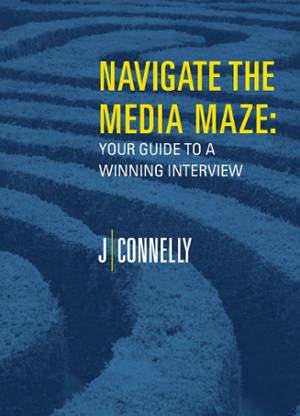
To the horror of some and amazement of others, Trump Senior Adviser Kellyanne Conway has managed to take the art of dodging media questions to a whole new level with even the most seasoned reporters.
While her tactics have been touted as some of the most impressive in the world of high-profile spin doctors—with Vox.com Editor-in-chief Ezra Klein calling her “ridiculously good”—her rise to PR stardom should be viewed more as a cautionary tale than an aspirational one. We need to look no further than the steady drumbeat of media coverage that has widely discredited, mocked and dismissed her to understand why.
In a recent video post, Klein identified four strategies Conway has mastered to avoid answering questions directly:
- Repeating keywords or concepts in a question to appear you are answering the question, but then introducing a non sequitur to direct the discussion to an unrelated topic
- Exploiting an interviewer’s tendency to be polite, trusting he or she will give up and move on rather repeat the same question over and over without getting an answer
- Passing the buck by saying, “I don’t know”
- Making up new facts
Conway, who has wielded these tactics with unapologetic confidence, has badly spun facts surrounding Trump’s former national security adviser’s contact with Russia, has criticized the press for not covering the non-existent “Bowling Green massacre,” and, of course, coined the now infamous phrase, “alternative facts,” in her attempt to explain Trump’s false claims about his inauguration crowd size.
But so we don’t confuse perfecting the artful dodge with adopting superior PR skills or a successful PR strategy, here are a few reasons why Conway should not be revered as the new industry standard:
If you’re a dodger, the press will identify you as one.
You can employ the dodging tactic as often as you’d like, but the media is also free to report you’re doing it. The coverage will shift from the “issue” to your avoidance of it, and you will be exposed as a habitual dodger. You can dodge the question, but then the dodge becomes the story.
Your behind-the-scenes interactions with the media may be exposed.
Reporters don’t typically cover the exchanges they have with sources involving conversations to schedule an interview, or discuss a source’s motives for agreeing to an interview. But if you become the story by avoiding their questions, those interactions may come into play. The Washington Post reported that MSNBC's “Morning Joe” hosts painted a picture of Conway as “an attention seeker who texts TV producers in a constant effort to get on air, so she can speak for a White House where she actually isn't in the know.”
You may get banned.
The media may limit your press time or ban you all together, as Conway has learned. The “Morning Joe” hosts said they banned her from their show because her information wasn’t reliable.
Reporters won’t like you.
Reporters who become frustrated after being repeatedly stonewalled will likely develop a personal dislike for you that may compromise their objectivity. That could be especially true if you employ the, “shoot the messenger” approach as Conway recently did, subtly suggesting reporters were callous for concluding that Trump had mocked a disabled reporter, as his gestures clearly indicated. “You always want to go by what’s come out of his mouth rather than look at what’s in his heart,” she said.
You will not accomplish the most fundamental of tasks.
If your job is to explain the activities of a public official or shed light on his or her beliefs, your avoidance of questions may feel like a violation of public trust. The public may see you as derelict in your duties if you obstruct the flow of information you're obligated to provide.
"Alternative facts" are never a good idea. These tactics will, at best, breed confusion and fuel mistrust, and, at worst, leave you notoriously ineffectual and forever tarnish your professional image. Let's never forget the lessons of Kellyanne Conway, the storied spin doctor who will likely go down in the books as someone who won the battle, but never the war.





Let’s Connect
Ready to build, grow, manage and protect your brand? Complete the form below to discuss how we can help.